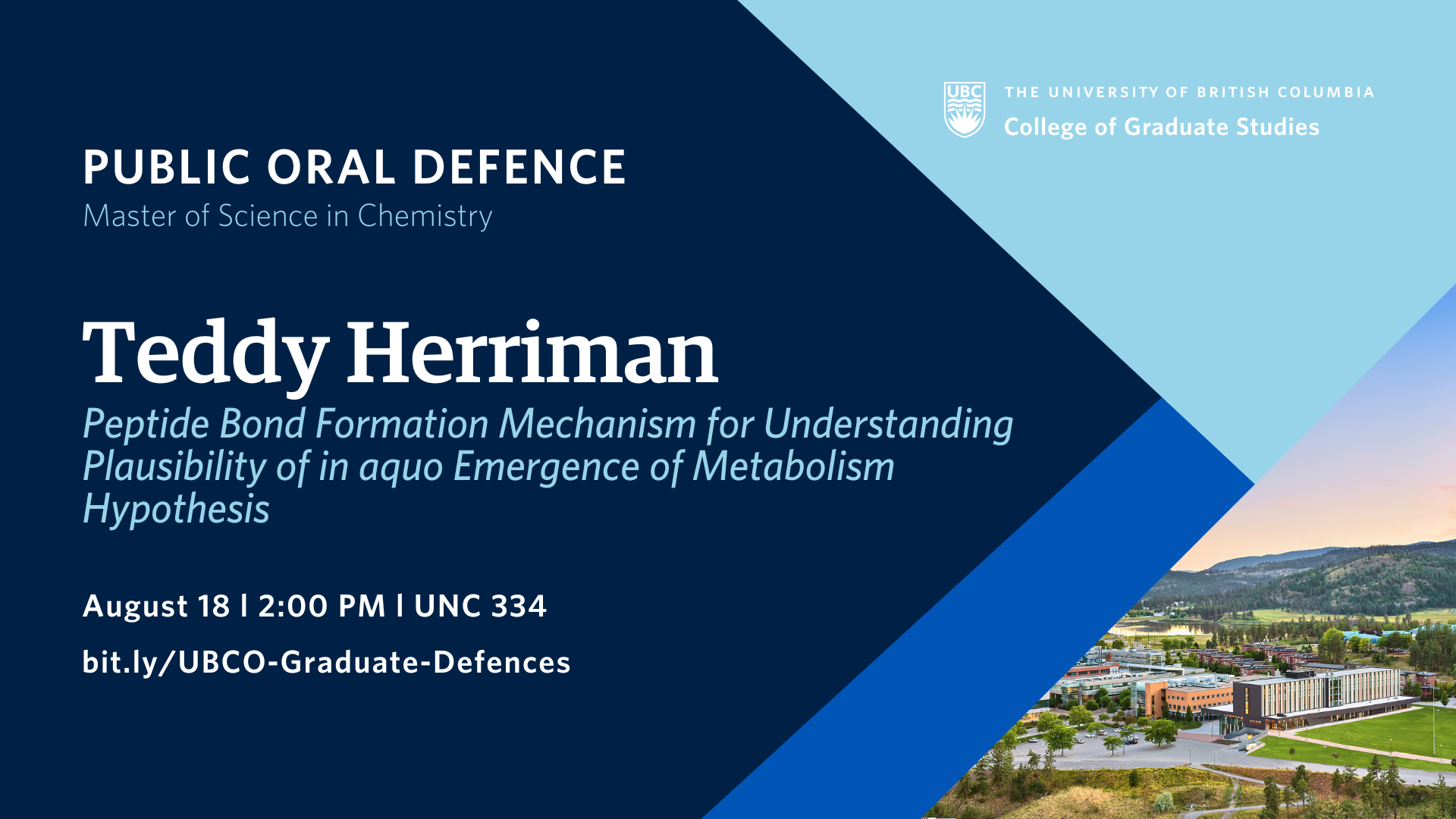
- This event has passed.
Thesis Defence: Peptide Bond Formation Mechanism for Understanding Plausibility of in aquo Emergence of Metabolism Hypothesis
August 18, 2023 at 2:00 pm - 5:00 pm

Teddy Herriman, supervised by Dr. Robert Szilagyi, will defend their thesis titled “Peptide Bond Formation Mechanism for Understanding Plausibility of in aquo Emergence of Metabolism Hypothesis” in partial fulfillment of the requirements for the degree of Master of Science in Chemistry.
An abstract for Teddy Herriman’s thesis is included below.
Defences are open to all members of the campus community as well as the general public. Registration is not required for in person defences.
ABSTRACT
Water chemistry is as fundamental to life today as it is enigmatic to understanding pre-biotic chemistry and the emergence of life. While water is useful for diffusion in modern biology, pre-biotic polymers such as peptides are susceptible to hydrolysis. Within the field, peptide bond formation is often taken for granted when compared to the study of amino acid formation and the functionality of hypothetically derived peptides in bulk water. In particular, emergence of life theorists and experimental chemists looking towards deep-sea hydrothermal vents sometimes conflate dipeptide with polypeptide formation. Simultaneously, computational chemists have generated models for peptide bond formation that do not replicate any of the experimentally obtained qualitative or quantitative components in these reactions. Because of this, those looking to test the comparative plausibility of various emergence of life hypothesis – by way of peptide bond formation – don’t have a theoretical baseline of ambient aqueous conditions for further chemical modification.
Here, as a first step in generation of a “goldilocks zone” for peptide bond formation, a mechanism for the reaction between two glycine molecules was discovered using density functional theory. This six-step mechanism quantitatively reproduces the measured hydrolysis activation energy of 96 to 106 kJ mol-1. Further, the mechanism provides a potential qualitative and quantitative explanation for the seeming equilibrium nature of dipeptide formation of amino acids observed so far in a water continuum. This knowledge has the potential then to further understand peptide regulation in biology and supply testable constraints for the emergence of metabolism.